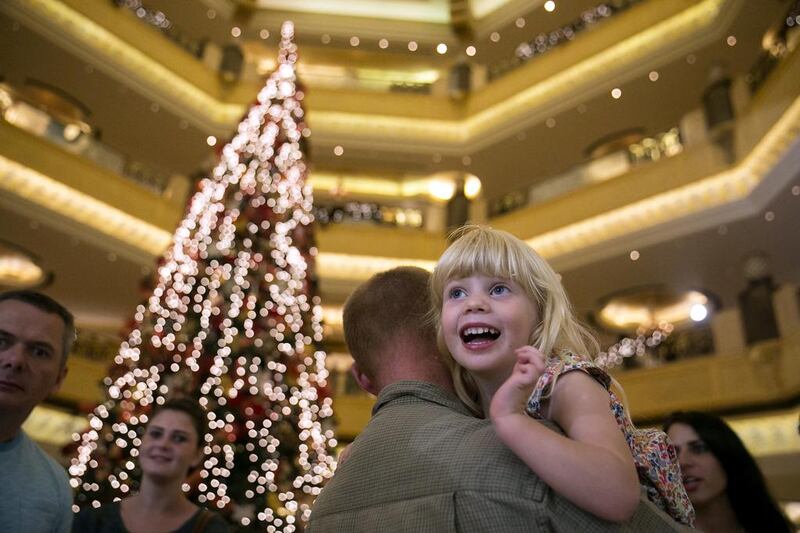Twelve months ago, my column was headlined As Christmas arrives, give thanks for the freedom we enjoy. It drew attention to the threats that Christians throughout much of the Middle East faced as a result of terrorism and fundamentalism and noted how fortunate we are to live in a land where religious and cultural tolerance was a fundamental element of the nature of society. Those threats have grown this year: there is no need here to rehash the horrors unleashed by ISIL in Syria and Iraq against those they deem to oppose them on religious or other grounds. I hope readers will, however, forgive me if I turn at this time, once again, to the importance of the tolerance that characterises the UAE.
It’s now more than 1,200 years since the Christian monastery on Sir Bani Yas fell into ruins and the people of this part of the world adopted Islam.
Unlike Egypt and the countries of the Levant – Lebanon, Syria, Jordan and Iraq – there is no indigenous Christian community. Yet, because of the long-established trading relationship between the UAE and the East, the people of this country have always been exposed to other cultures and faiths.
The tolerance that we witness today arose as a result of that familiarity. Today, among the UAE’s expatriates from more than 200 countries, there are Christian, Hindu, Buddhist, Sikh and other religious communities living here peacefully, side by side with Muslims – both Emiratis and of other nationalities.
The tolerance that underpins UAE society today is visible all around us, particularly now, at Christmas, and can be seen in the way different communities practice their faiths. There are more than 40 churches and cathedrals throughout the UAE, which will be attended over the next few days by thousands of worshippers. These have been built on land given by the governments of the emirates and have often received financial assistance from Emirati institutions as well.
When Christianity and other faiths in the Arab world face a clear threat from extremist fanatics such as those of ISIL, it is understandable that in much of the rest of the world a perception has developed that somehow Islam itself is hostile to the very idea of religious tolerance and dialogue.
Here in the UAE, we know, however, that this is not the case. Islam, as practised by Emiratis, has tolerance and opposition to fundamentalist views at its very core. One only has to read the statements by Sheikh Mohammed bin Zayed, on the recent slaughter of children by the Pakistani Taliban, and Sheikh Abdullah bin Zayed, on the taking of hostages in Australia by a criminal who claimed religious motivations, or to recall the abhorrence felt by Emiratis at the murder of an American teacher on Reem Island to know that.
Sadly, there are still misconceptions abroad about this aspect of the UAE. How else, for example, can one understand the decision by Spanish football club Real Madrid to alter the club’s logo on the new credit card launched in collaboration with the National Bank of Abu Dhabi? On that logo, as used in Spain, there is a tiny cross. Yet on the NBAD/Real Madrid credit card, the cross has been removed, prompting a storm of critical publicity in the Spanish sports media.
The decision, I gather, was taken by the club, unnecessarily fearful of giving offence. I fail to understand, though, why wiser heads at NBAD didn’t intervene to tell them that the logo was fine as it was. Can they have been unaware of the damage that this might do to the image of the UAE?
It is time that more was done to spread knowledge of the UAE’s tolerance more widely, to inform people overseas, in Christian countries, in Muslim countries and in others. We have a record that does the country credit: it should be more widely known.
Peter Hellyer is a consultant specialising in the UAE’s history and culture





